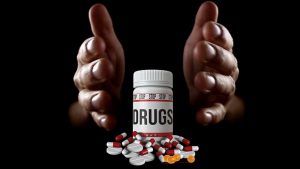Drug driving is widely spoken about, with a zero-tolerance limit in the UK.
However, what people don’t realise is that there are by-products that can be released into the body after drug consumption that can impact drug tests even days after taking the drug.
In this blog, we’ll discuss what Benzoylecgonine is, the consequences of it being in your system while driving for business as an HGV driver for example, and the advised protocol to help your case.
What is Benzoylecgonine?

Benzoylecgonine is what’s produced by the liver after cocaine is consumed. It takes around 30 minutes to become detectable in the body and rises over the following 2-3 hours.
The difference between Benzoylecgonine and Cocaine
Also known as BZE, Benzoylecgonine is an inactive substance but lasts longer in your system than cocaine.
Cocaine takes around 4-6 hours to be fully eliminated from the body, while BZE can stick around for a maximum of 6 days.
It’s included in legal limits, too, so if a person gets found drug driving (or taking cocaine) then BZE will still be flagged on a drug test – even if the cocaine has been eliminated from the body.
Consequences of driving with Benzoylecgonine in your system
The legal limit in the UK is 50µg% (micrograms).
If you are found to be over this limit, you could:
- face a driving ban or imprisonment
- be given a fine
- get your licence suspended or revoked
If you are convicted of drug driving, you or your employer may likely be met with higher insurance premiums or difficulty obtaining insurance at all and may face difficulty getting a job in certain sectors due to your criminal record.
How to avoid a drug driving conviction related to Benzoylecgonine
Due to the technicalities that come with testing for BZE, enlisting the help of a specialist drug driving solicitor can massively help your case.
Those at MAJ Law have years of experience dealing with all types of drug cases. Using their knowledge of testing methods, they can help you get a lesser sentence or avoid one altogether.
Like drugs, testing for BZE is a complex and technical process, meaning not all results are accurate. For example, Benzoylecgonine can be found in our water supplies, and while the levels are low, it could still put motorists over the limit.
So, false positives, the method of analysis, and quality assurance procedures can all be questioned before a sentence is given.
Steps to take if you’re charged with Benzoylecgonine drug driving

If you get charged with Benzoylecgonine drug driving, the following tips could help your case:
1. Seek legal advice as soon as possible:
Anything you say will be used against you in court, so it’s important to get in touch with a specialist drug driving lawyer who understands the effects of Benzoylecgonine. They’ll help support your case in court and guide you through the whole legal process.
2. Familiarise yourself with the charges:
Having an understanding of the law and the charges that could be made against you will help you or your employer to prepare for your court case.
3. Prepare for court:
With your drug driving lawyer, it’s important you prepare your defence properly, understanding possible plea options and potential penalties.
Displaying true remorse for your actions shows the court you’re taking it seriously and will take the relevant precautions to ensure it doesn’t happen again.
Author Profile

- Informed content writer and creator in the UK, always on the lookout for new stories, developments and trends to share.
Latest entries
 Must Read NewsJanuary 2, 2026Why Reliable Nicotine Salt Brands Are Gaining Ground with UK Vape Retailers
Must Read NewsJanuary 2, 2026Why Reliable Nicotine Salt Brands Are Gaining Ground with UK Vape Retailers DictionaryDecember 18, 2025What’s Trending in London for Christmas 2025 – A Traditional or Modern Approach?
DictionaryDecember 18, 2025What’s Trending in London for Christmas 2025 – A Traditional or Modern Approach? Business AdviceDecember 2, 20254 Cost Management Strategies for Transport Business Owners
Business AdviceDecember 2, 20254 Cost Management Strategies for Transport Business Owners BusinessNovember 13, 2025Why Hiring Security Services Could Be Your Best Business Decision
BusinessNovember 13, 2025Why Hiring Security Services Could Be Your Best Business Decision


